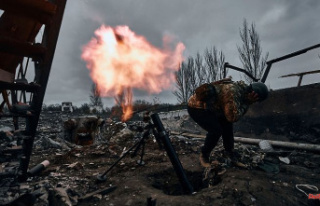The post of the head of Rostock's town hall is in high demand. 17 candidates wanted him - but none of them managed to win the election in the first round. After the election is now before the runoff.
Rostock (dpa/mv) - In the Rostock mayoral election on Sunday, none of the 17 candidates achieved the absolute majority required to win in the first round. In two weeks, on November 27th, there will be a runoff between the two first-placed Eva-Maria Kröger from the Left Party and the former Rostock police chief Michael Ebert, who is supported by the CDU and FDP.
After counting over 90 percent of the electoral districts on Sunday evening, Kröger was around 25 percent of the votes, Ebert just behind with around 23 percent. The SPD candidate, the head of the Rostock State Building and Property Office, Carmen-Alina Botezatu, received around 16 percent of the votes.
The election was necessary because the previous incumbent, Claus Ruhe Madsen, moved to Schleswig-Holstein as Economics Minister in June in the cabinet of Prime Minister Daniel Günther (CDU). With almost 210,000 inhabitants, Rostock is the largest city in Mecklenburg-West Pomerania.
Around 172,000 eligible voters were invited to vote. Voters aged 16 and over were entitled to vote. There were 4700 first-time voters. Voter turnout was reported to be over 43 percent. In the last mayor election in 2019, it was 59 percent in the first ballot and 44.1 percent in the necessary runoff.
85 ballot box and 57 postal ballot boards were responsible for submitting and counting the votes. More than 1,300 election workers had been appointed. The term of office of the mayor is seven years.
The future mayor will have to work with a citizenry in which shifting majorities in decision-making are no exception. The city parliament has 53 members. The left is the strongest parliamentary group there, followed by the CDU/UFR, the Greens, the SPD and the Rostocker Bund parliamentary group.












